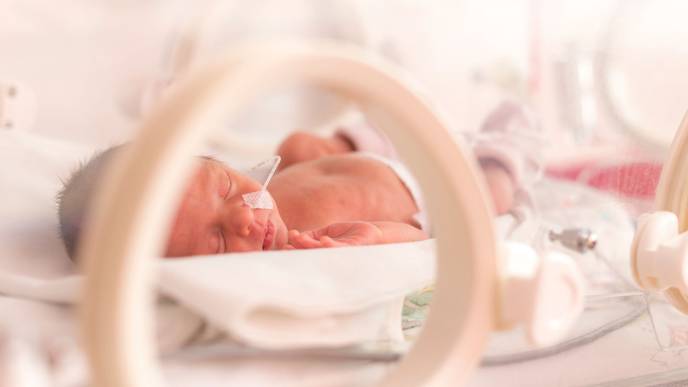Swedish Parental Leave Policy Increases Premature Births

04/09/2024
The introduction of a policy protecting parental leave benefits in Sweden in 1980 had unintended consequences on child health. The policy led to an increase in premature birth rates. This is shown by a study from researchers at Stockholm University, published in JAMA Pediatrics.
The Swedish so-called speed premium policy was introduced in 1980 in order to protect couples' level of income-based parental leave benefits when they had children in quick succession. The new study from Stockholm University evaluates the health consequences of the policy. The researchers conclude that by unintentionally encouraging couples to have children within a shorter 24-month interval, the policy led to a 26% increase in the proportion of children born prematurely over the six years that it was in force.
"The results are convincing as the relaxation of the policy to a 30-month window in 1986 was meanwhile associated with an 11% decrease in premature birth rates in the following years. These changes remain in place today," says Enrico Debiasi, researcher at the Department of Public Health Sciences, Stockholm University.
Parental leave benefits in Sweden for most parents consist of approximately 80% of their salary prior to childbirth. However, due to a previous non-salaried leave period or a shift to part-time work, parents who already have a child might receive lower benefits for their next child. This is a situation that is very common for Swedish women after a period of parental leave, according to Debiasi.
In order to reduce the risk of low benefits for parents who had children in quick succession, the speed premium policywas introduced. The policy stipulated that among those with children born up to 24 months apart, parental leave benefits would be calculated according to the income received before the first one of those children was born.
"The policy was well-intentioned and offered important socioeconomic benefits for mothers, as has been shown previously. However, it did not anticipate that parents would shorten birth spacing, which is associated with adverse health consequences for the mother and the child," says Sol Juárez, Associate Professor at the Department of Public Health Sciences, Stockholm University.
The policy also encouraged women to postpone having children in order to protect their income, while still achieving their desired number of children, adds Helena Honkaniemi, researcher at the Department of Public Health Sciences, Stockholm University.
"This resulted in a higher proportion of women having multiple children at advanced ages, which is also a risk factor for several adverse reproductive health outcomes," she says.
Overall, the new study offers an excellent example of the consequences of not considering health when designing family policies, according to Juárez.
The study was published in the scientific journal JAMA Pediatrics.
Facts
The study "Unintended perinatal health consequences associated with a Swedish family policy" is part of the research project "The unintended consequences of Swedish parental leave policy: A health equity perspective" led by Associate Professor Sol Juárez. Its purpose is to contribute much needed knowledge to ongoing debates on parental leave policy reforms by illustrating the ways in which they can also act as health policies, while providing knowledge that can be used to help achieve Sweden's public health policy goals of social and health equity for all. The project is funded by The Swedish Research Council (Vetenskapsrådet).
/Public Release. This material from the originating organization/author(s) might be of the point-in-time nature, and edited for clarity, style and length. Mirage.News does not take institutional positions or sides, and all views, positions, and conclusions expressed herein are solely those of the author(s).View in full
here.

Facebook Comments